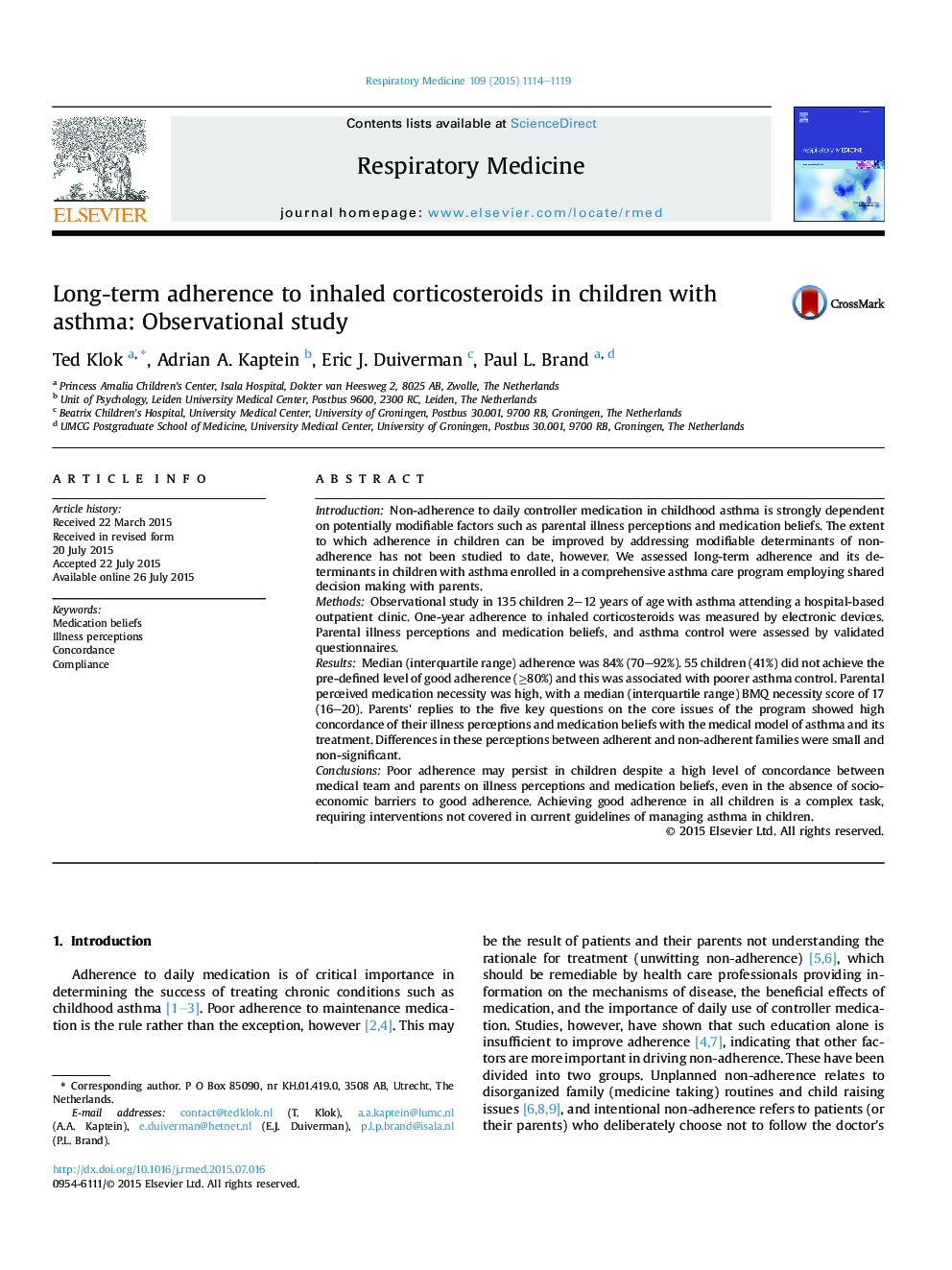| کد مقاله | کد نشریه | سال انتشار | مقاله انگلیسی | نسخه تمام متن |
|---|---|---|---|---|
| 6241448 | 1280552 | 2015 | 6 صفحه PDF | دانلود رایگان |
- This study population received comprehensive, patient-centered asthma care.
- Agreement on the necessity of daily ICS use was achieved with most parents.
- This was associated with high median adherence to daily use of inhaled steroids of 82%.
- 40% of the children received less than 80% of the prescribed dose of inhaled steroids.
- Poor adherence was associated with a lower level of asthma control.
IntroductionNon-adherence to daily controller medication in childhood asthma is strongly dependent on potentially modifiable factors such as parental illness perceptions and medication beliefs. The extent to which adherence in children can be improved by addressing modifiable determinants of non-adherence has not been studied to date, however. We assessed long-term adherence and its determinants in children with asthma enrolled in a comprehensive asthma care program employing shared decision making with parents.MethodsObservational study in 135 children 2-12 years of age with asthma attending a hospital-based outpatient clinic. One-year adherence to inhaled corticosteroids was measured by electronic devices. Parental illness perceptions and medication beliefs, and asthma control were assessed by validated questionnaires.ResultsMedian (interquartile range) adherence was 84% (70-92%). 55 children (41%) did not achieve the pre-defined level of good adherence (â¥80%) and this was associated with poorer asthma control. Parental perceived medication necessity was high, with a median (interquartile range) BMQ necessity score of 17 (16-20). Parents' replies to the five key questions on the core issues of the program showed high concordance of their illness perceptions and medication beliefs with the medical model of asthma and its treatment. Differences in these perceptions between adherent and non-adherent families were small and non-significant.ConclusionsPoor adherence may persist in children despite a high level of concordance between medical team and parents on illness perceptions and medication beliefs, even in the absence of socio-economic barriers to good adherence. Achieving good adherence in all children is a complex task, requiring interventions not covered in current guidelines of managing asthma in children.
High parental perceived necessity of inhaled corticosteroids is associated with good adherence. However, in this study population receiving extensive asthma care, most parent have medication beliefs concordant with the asthma team. To improve adherence, the asthma team should focus on other potential barriers to adherence.166
Journal: Respiratory Medicine - Volume 109, Issue 9, September 2015, Pages 1114-1119
